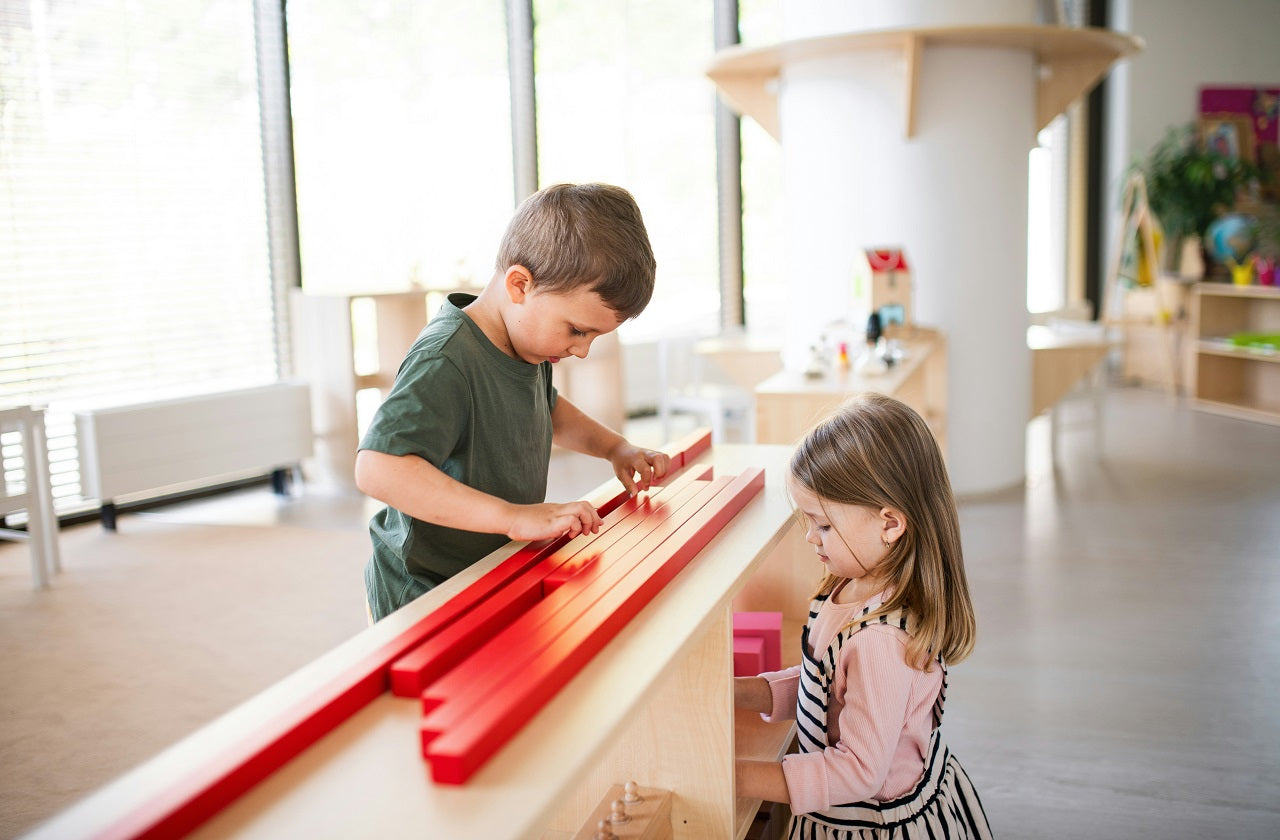Developing Emotional Intelligence in Children through Montessori Education

Emotional intelligence, the ability to recognize, understand, and manage our emotions and those of others, is a vital aspect of a child's personal and social development. Through Montessori education, we can foster emotional intelligence by providing an environment that nurtures empathy, resilience, and self-awareness. In this article, we will explore the significance of emotional intelligence in a child's growth and the ways in which Montessori education helps cultivate these essential skills.
By understanding the valuable role emotional intelligence plays in a child's development and implementing Montessori principles and practices, we can actively support our children's emotional growth, equipping them with the tools they need for a fulfilling and successful life.
Developing Emotional Intelligence in Children through Montessori Education
Emotional intelligence plays a critical role in a child's personal and social development, equipping them with the tools to build healthy relationships, navigate challenges, and lead successful lives. Montessori education provides a holistic approach to fostering emotional intelligence through its focus on empathy, resilience, and self-awareness. In this article, we will explore the ways Montessori principles and practices nurture these essential skills and offer practical strategies for parents and caregivers to support their child's emotional growth.
The Role of Emotional Intelligence in Child Development
Emotional intelligence encompasses several key abilities that contribute to a child's well-rounded development:
- Empathy and Compassion: Understanding and sharing the feelings of others help children build strong relationships and develop a sense of social responsibility.
- Resilience and Adaptability: The ability to cope with challenges and bounce back from setbacks empowers children to thrive in an ever-changing world.
- Self-Awareness and Emotional Regulation: Recognizing and managing one's own emotions contributes to a healthy sense of self and enables effective communication with others.
How Montessori Education Fosters Emotional Intelligence
Montessori education is designed to facilitate the development of emotional intelligence through its unique educational philosophy, environment, and teaching practices:
- Respect for the Child: Montessori education places a strong emphasis on respecting each child's individuality, fostering a secure and supportive environment that promotes emotional growth.
- Prepared Environment: Montessori learning spaces promote self- sufficiency, autonomy, and collaboration, helping children build confidence, resilience, and empathy.
- Practical Life Activities: Montessori practical life lessons, which include activities like food preparation and care for the environment, teach children essential life skills, encourage cooperation and social awareness.
- Peace Education: Montessori education emphasizes teaching peace and conflict resolution skills, helping children develop empathy, respect, and compassion for others.
Strategies for Developing Empathy and Compassion in Children
There are several ways in which parents and caregivers can nurture empathy and compassion in their children:
- Model Empathetic Behavior: Be a role model for your child by demonstrating empathetic actions, such as helping others, expressing concern, and offering emotional support.
- Encourage Emotional Expression: Provide opportunities for your child to express their emotions freely and validate their feelings, fostering a deeper understanding of both their own and others' emotions.
- Engage in Perspective-Taking Activities: Foster empathy by engaging your child in activities that help them consider the feelings and viewpoints of others, such as reading stories with diverse characters or engaging in role-playing exercises.
Fostering Resilience and Adaptability in Montessori Environments
Resilience and adaptability are crucial life skills that can be cultivated through Montessori principles and practices:
- Encourage Problem Solving: Montessori environments promote self-directed learning and problem-solving, which helps children develop resilience and adaptability as they overcome challenges.
- Promote Autonomy: Montessori education encourages children to make choices and take responsibility for their actions, fostering a sense of self-efficacy and resilience.
- Provide Opportunities for Risk-Taking: Allow your child to take safe risks and face new challenges, supporting their growth as they learn to cope with setbacks and embrace change.
Cultivating Self-Awareness and Emotional Regulation in Children
Montessori education emphasizes the development of self-awareness and emotional regulation in children:
- Teach Emotional Vocabulary: Help your child develop a rich emotional vocabulary by naming and discussing various emotions and encouraging them to express their feelings clearly.
- Practice Mindfulness: Foster self-awareness and emotional regulation by incorporating mindfulness practices, such as deep breathing and body scans, into your child's daily routine.
- Develop Emotional Regulation Strategies: Educate your child about various ways to manage their emotions effectively, such as seeking social support, engaging in physical activity, or practicing relaxation techniques.
Conclusion:
Montessori education provides an invaluable framework for developing emotional intelligence in children through its emphasis on empathy, resilience, and self-awareness. By embracing Montessori principles and practices in daily life, parents and caregivers can actively support their child's emotional growth and prepare them to navigate the challenges and triumphs of life with confidence and grace. Equip your child with the essential skills and tools for integrating a Montessori approach to your child’s development through The Topponcino Company’s Montessori pillows.












